
Uganda and Team Europe: Working together for a better digital future
Through the AU-EU Digital for Development (D4D) Hub, the European Union and its Member States are stepping up their support for Uganda's digital transformation ambitions

When the COVID-19 pandemic broke out in 2020, much of the world moved online, accelerating a digital transformation that was underway for decades. Uganda was no exception to this trend. Faced with strict lockdowns and school closures, the country was confronted with the need to speed up the adoption of digital technologies to keep its society running and make sure that no one was left behind.
Since then, the Government of Uganda has made it a top priority to invest in Information and Communication Technologies (ICT) and online services to become a more resilient, productive, and competitive economy. In just a couple of years, the country has made great strides in its digital transformation journey. Examples of important achievements include the rolling out of an electronic tax system and an online visa application portal.
In line with its mandate to support African institutions to lay grounds for an inclusive and sustainable digital transformation, the African Union - European Union (AU-EU) Digital for Development (D4D) Hub is working with the Government of Uganda to realise its digital transformation ambitions. The project has provided an effective platform for the European Union and its Member States (collectively referred to as Team Europe) to leverage their joint expertise and resources to become a trusted partner for Uganda to collaborate in the digital policy field.
A vision to build a Digital Uganda
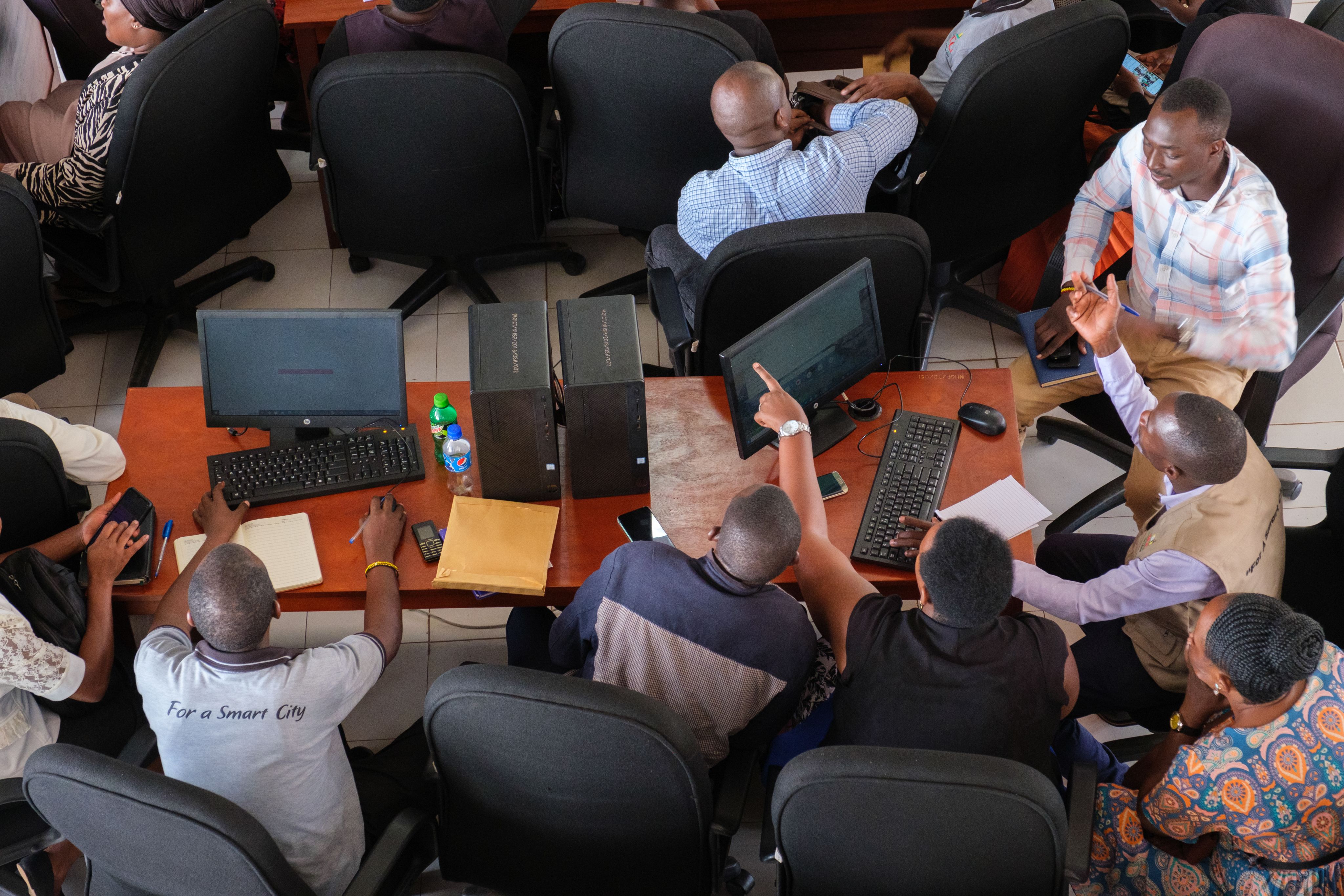
Quickly capitalising on the political will to put ICT at the centre of national development, one of the first steps that Uganda took was to draft a strategic framework called the Digital Uganda Vision. Under the direction of the Ministry of ICT and National Guidance – the institution mandated to steer and coordinate the Ugandan ICT sector – this document harmonised different policies and provided overarching guidance on how to build a digital society by 2040.
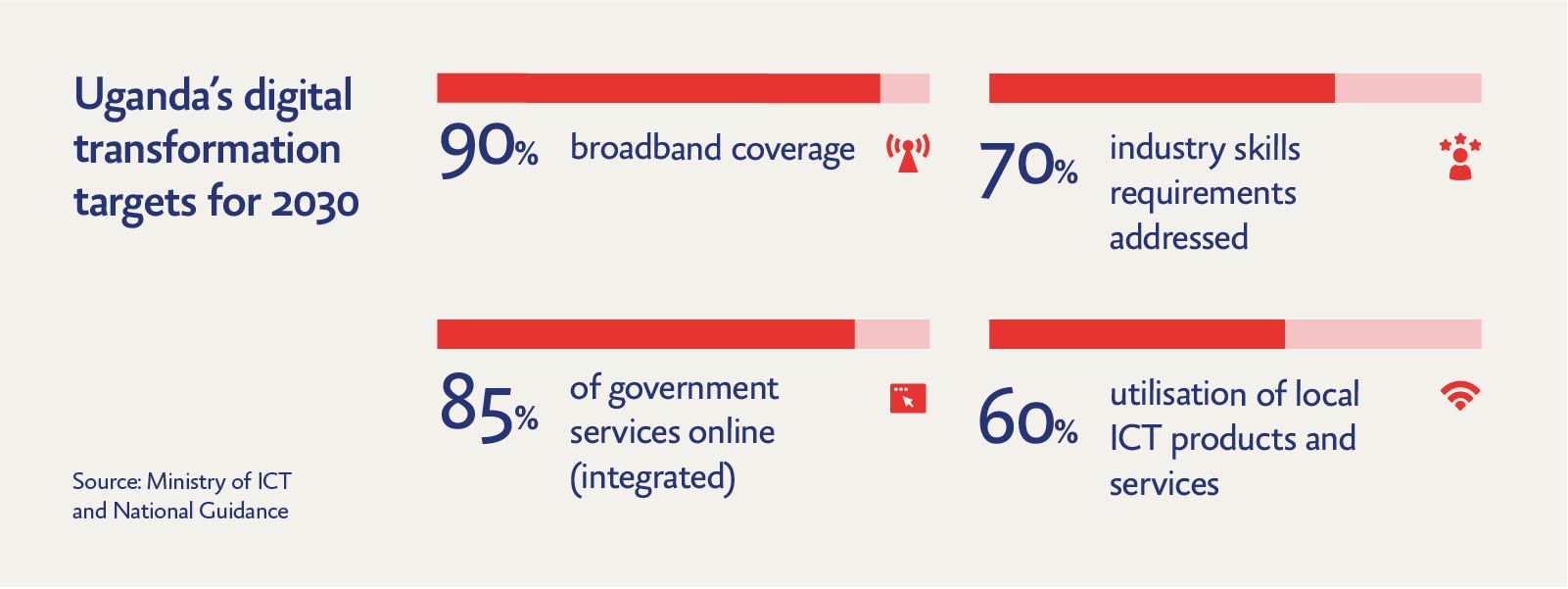
However, having a clear vision and strong leadership does not suffice to materialise the digital transformation. With the aim of translating the objectives of the Digital Uganda Vision into actionable targets, the Ministry of ICT and National Guidance has now embarked on the drafting and operationalisation of a Digital Transformation Roadmap – a concrete plan that prioritises the most pressing actions.
“While it is very tempting to try to do everything at once, what our Digital Transformation Roadmap does is to identify low-hanging fruits that we should be able to achieve within the short term. It then sets targets that we should be able to reach within the medium term, and finally, what shall we attain in the longer term,” said Dr Aminah Zawedde, Permanent Secretary at the Ministry of ICT and National Guidance.
Podcast: Uganda’s digital transformation journey
Listen to Dr Aminah Zawedde, Permanent Secretary at the Ministry of ICT and National Guidance, share her insights into Uganda’s lessons learned, opportunities, and challenges in the digital transformation field:
According to Dr Zawedde, different institutions have embarked on the digitalisation of their processes and citizen services. The next step for the Ministry of ICT is thus to align all these efforts, as well as to ensure that the necessary infrastructure and policies are set in place.
“Digital transformation is after all a continuous improvement journey. On top of what we have already achieved so far, I believe that we have plenty of room for growth, and the Ministry of ICT and National Guidance is taking the lead on implementing this vision,” she added.
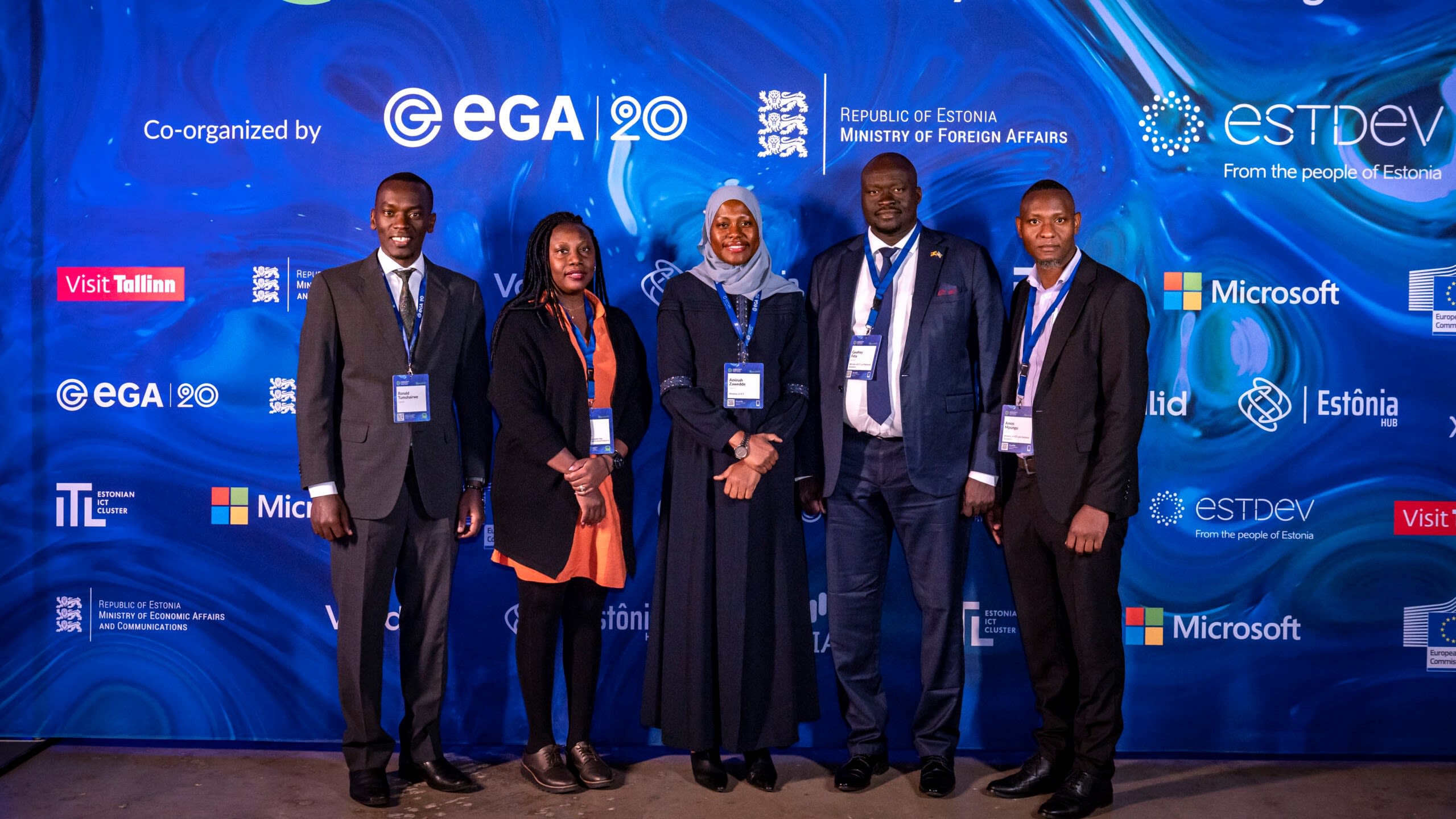
A Ugandan delegation travelled to Estonia to present Uganda's digital transformation journey at the e-Goverance Conference 2023. Photo credit: e-GA
A Ugandan delegation travelled to Estonia to present Uganda's digital transformation journey at the e-Goverance Conference 2023. Photo credit: e-GA
Laying grounds for Uganda’s digital transformation
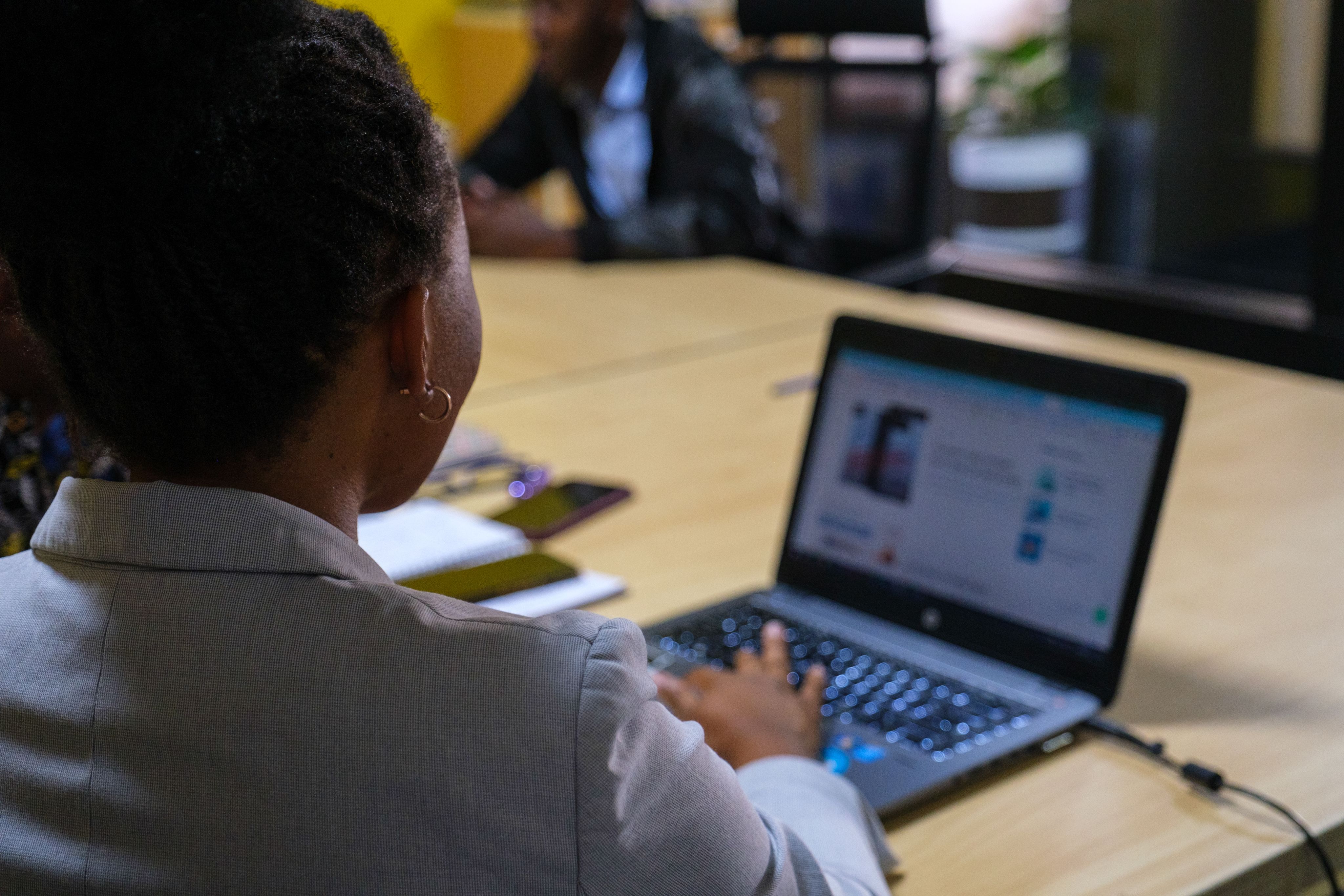
The AU-EU D4D Hub began collaborating with the Government of Uganda in early 2022 – just when the country started re-emerging from prolonged lockdowns. Enabel, the Belgian Development Agency, organised a benchmarking trip for Ugandan civil servants to visit Estonia to identify gaps, needs, and opportunities to advance their own digital transformation.
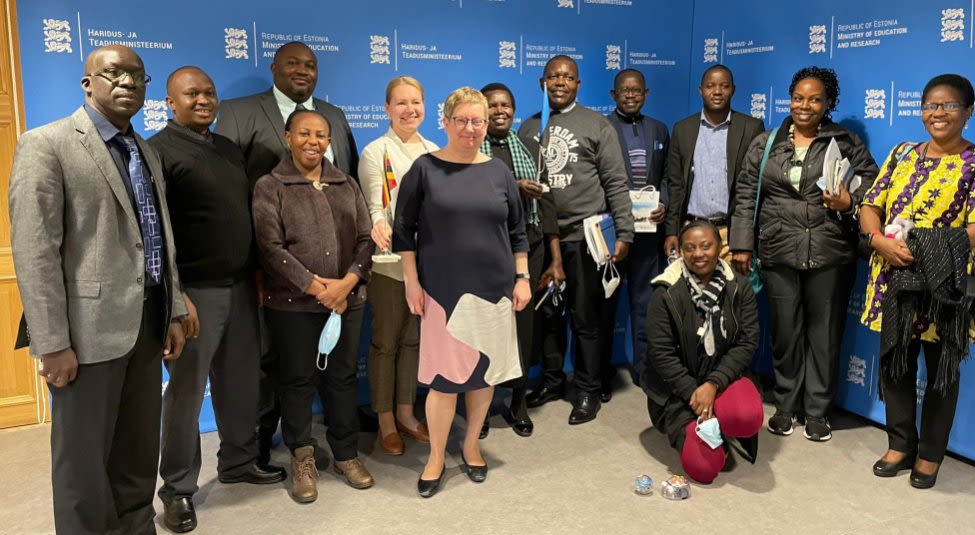
Benchmarking trip to Estonia. Photo credit: ESTDEV
Benchmarking trip to Estonia. Photo credit: ESTDEV
“Estonia is a European and global role model in terms of digital transformation. The purpose of this trip was to give Ugandan policymakers the opportunity to learn from the best and to define priorities,” said Bart Cornille, Digital for Development expert at Enabel in Uganda.
According to Katrin Winter, Regional Head of Africa at ESTDEV, this visit allowed Estonian partners to develop a good relationship with different Ugandan ministries and to make a match between their needs and Estonia’s expertise. “It is really hard to grasp what we have to offer unless you’ve seen it with your own eyes”, she said.
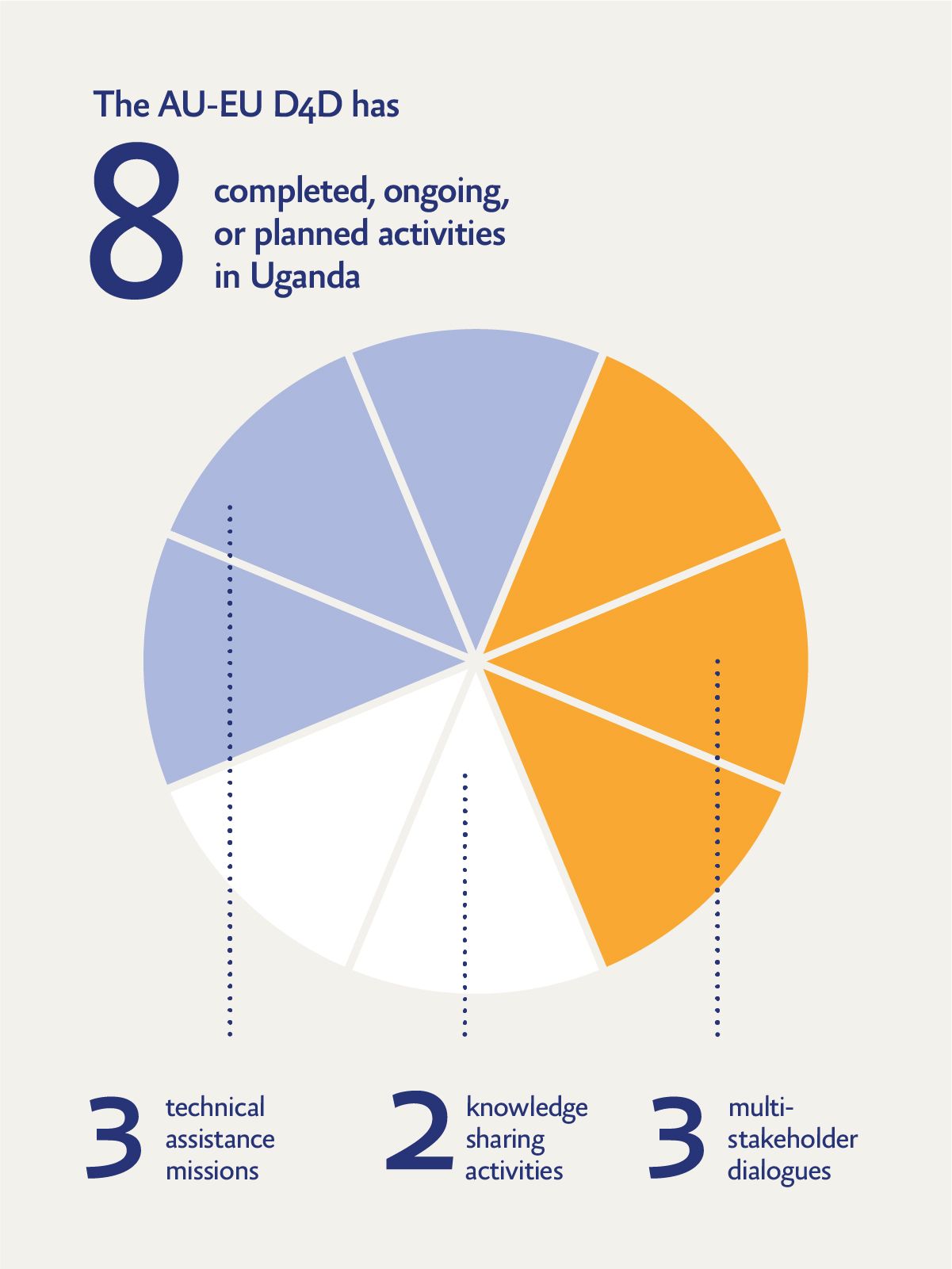
One identified issue, for example, was limited coordination between the government and other actors working in the digital field. According to Winter, one of Estonia’s key successes has been the set-up of effective public-private partnerships to advance the digital transformation.
Inspired by this experience, the Ministry of ICT and National Guidance requested the AU-EU D4D Hub (through Enabel) to organise a multi-stakeholder dialogue to meet with Uganda’s digital ecosystem.



In focus: Facilitating multi-stakeholder dialogues in Uganda
On 26 May 2022, the Ministry of ICT and National Guidance, with the support of the AU-EU D4D Hub, gathered the main actors of Uganda’s digital ecosystem with the objective of identifying common working areas and ongoing activities. The event represented the first large-scale attempt of the Ministry to increase coordination of civil society organisations, private sector actors, and international partners working in the digital field in Uganda.
A follow-up multi-stakeholder dialogue was held on 18 May 2023 in collaboration with UNDP, this time with the aim of presenting the country’s Digital Transformation Roadmap and openly discussing how different actors can support its implementation.
Following these events, a formal coordination mechanism has been reinforced under the leadership of the Ministry of ICT and National Guidance. Committed to further advancing synergies and coordination in the digital cooperation field, Team Europe partners are active contributors and support the facilitation of diverse thematic working groups.
Dr Aminah Zawedde, Permanent Secretary at the Ministry of ICT and National Guidance, explains why coordination is key to implementing Uganda’s Digital Transformation Roadmap
Dr Aminah Zawedde, Permanent Secretary at the Ministry of ICT and National Guidance, explains why coordination is key to implementing Uganda’s Digital Transformation Roadmap

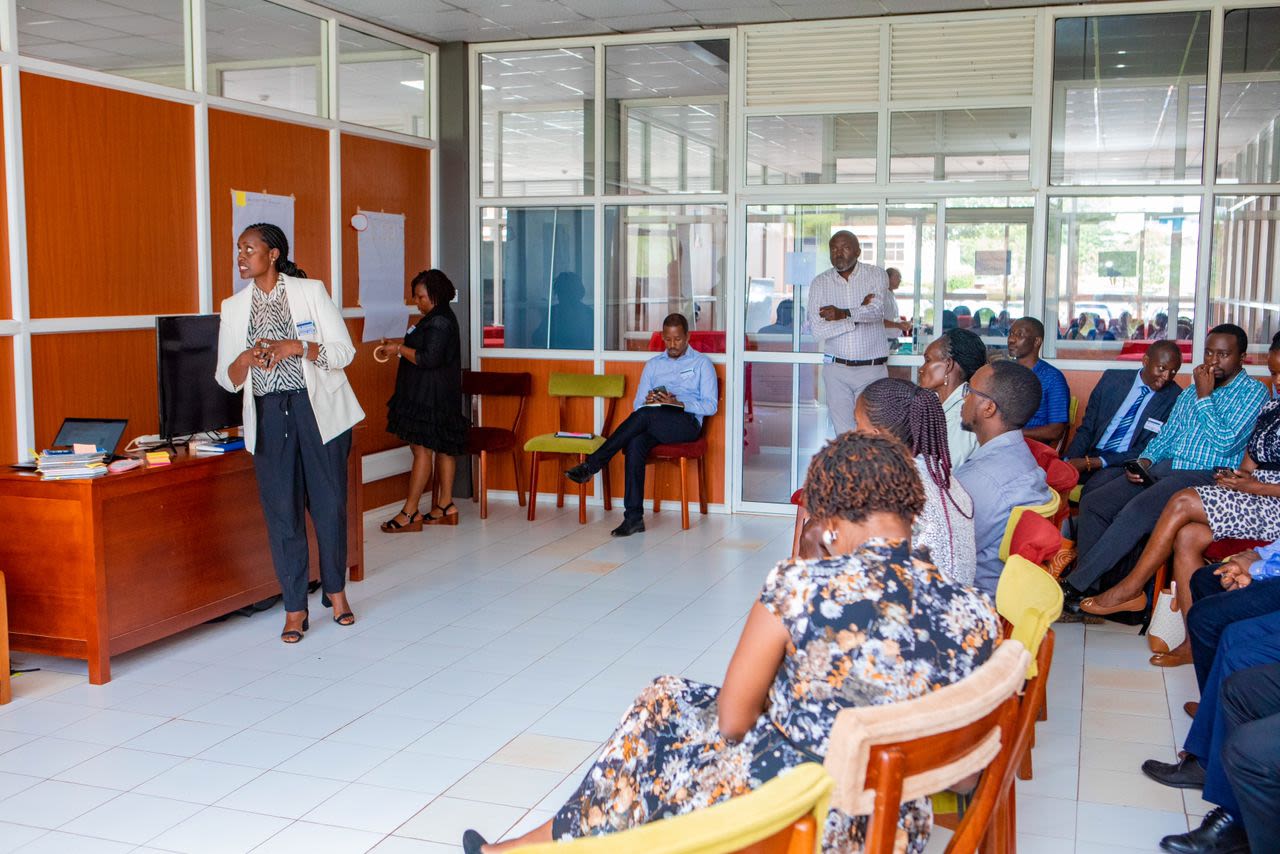
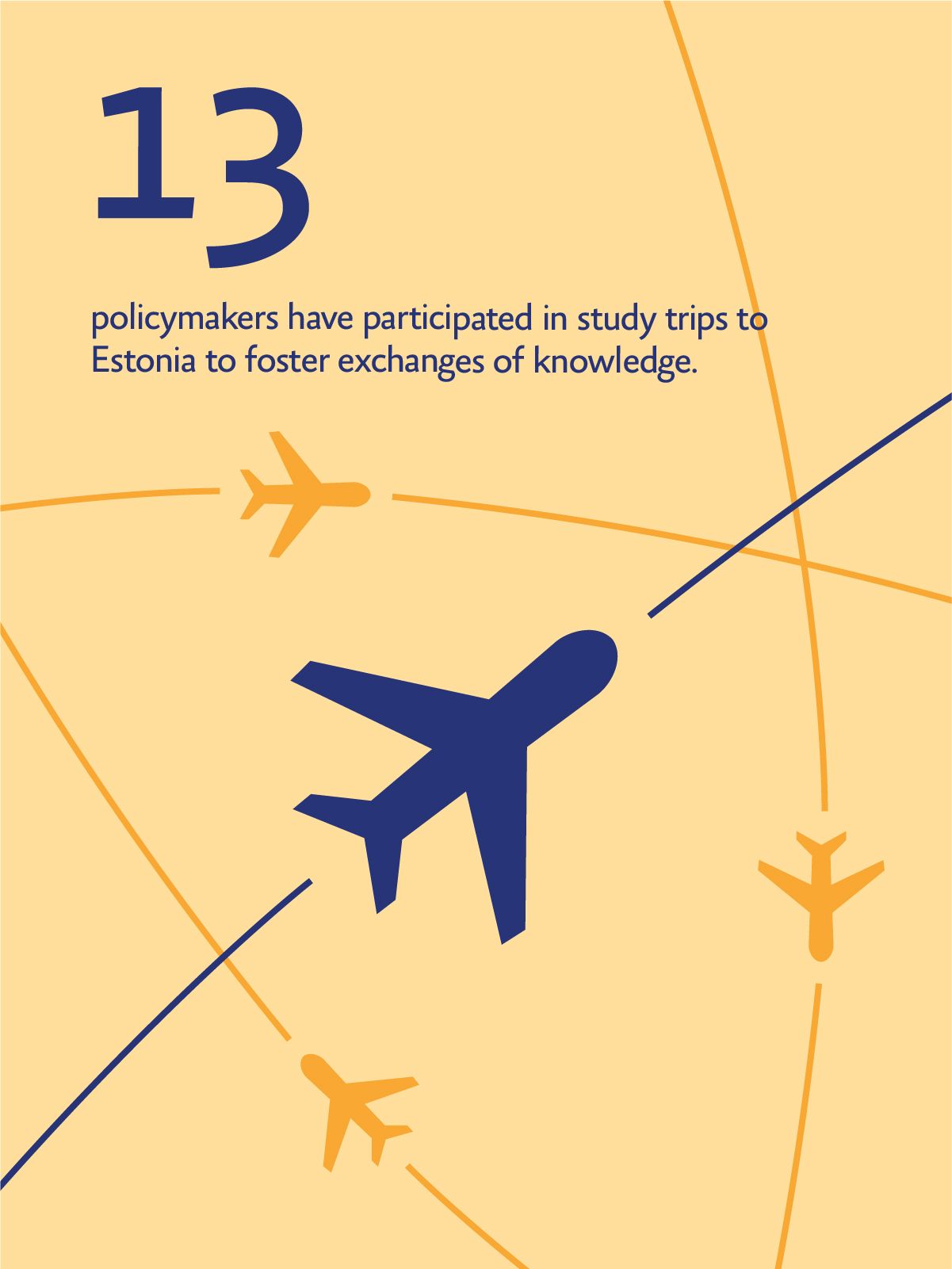
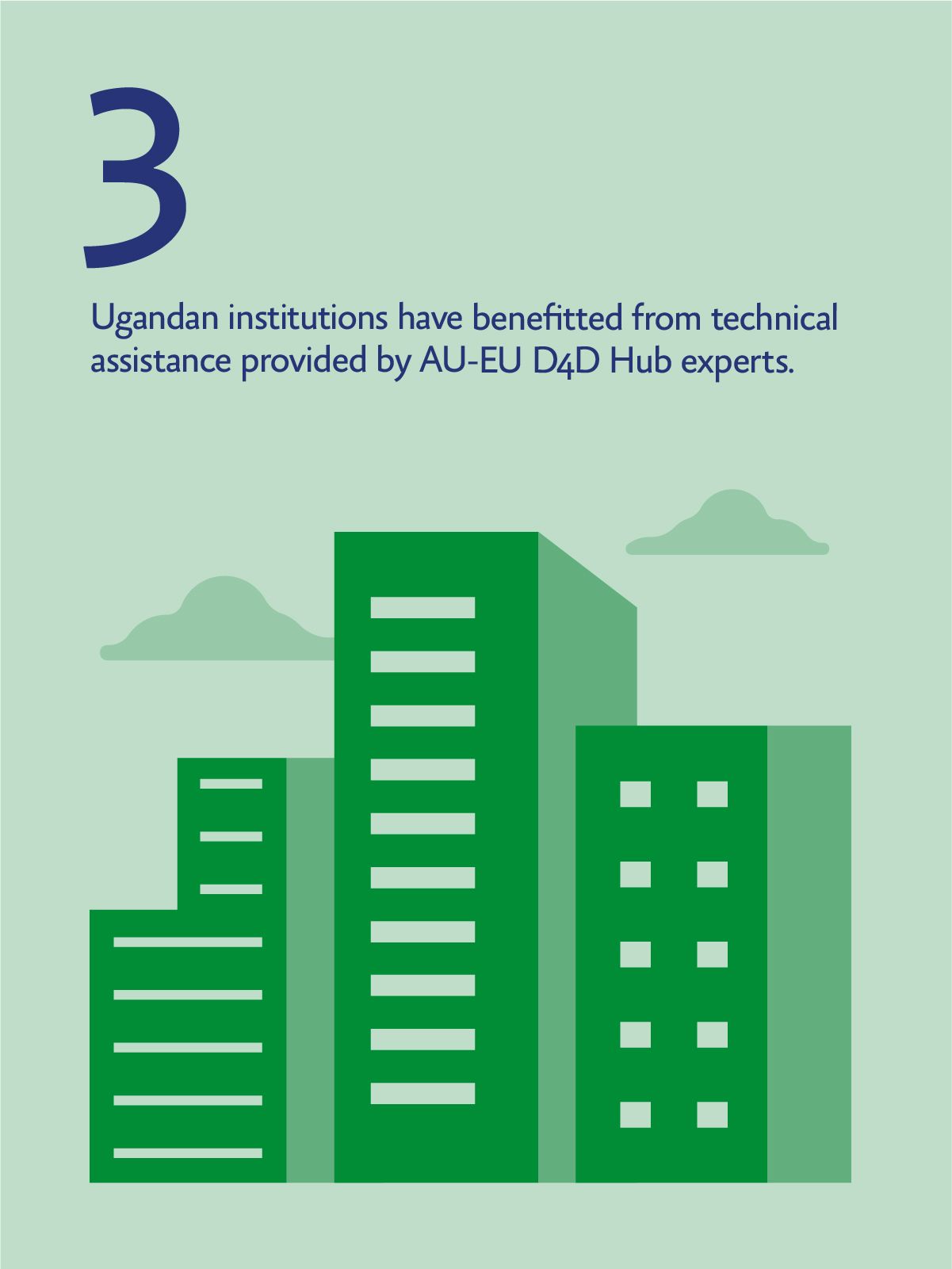
Since then, the AU-EU D4D Hub has continued to work with the Ministry of ICT and National Guidance to foster coordination between digital stakeholders, but its services have expanded to cover technical assistance and knowledge sharing activities – also supporting other government institutions.

An example of such collaboration is a technical assistance to improve data flows in the education sector, which is being carried out by Estonian experts from the e-Governance Academy and Aktors.
“The AU-EU D4D Hub’s technical assistance is enabling us to do the groundwork for the digital transformation of the education sector. We now have a mapping and a process to integrate our information systems to ensure secure data flows,” said Patrick Muinda, Assistant Commissioner for Communications and Information Management at the Ministry of Education and Sports.
Other examples include a feasibility study to increase the provision of digital public services through the postal system (led by Enabel), a regional dialogue for data protection authorities from East Africa including Uganda's Personal Data Protection Office (PDPO), and technical guidance on the digitalisation of the public procurement authority (provided by GIZ).
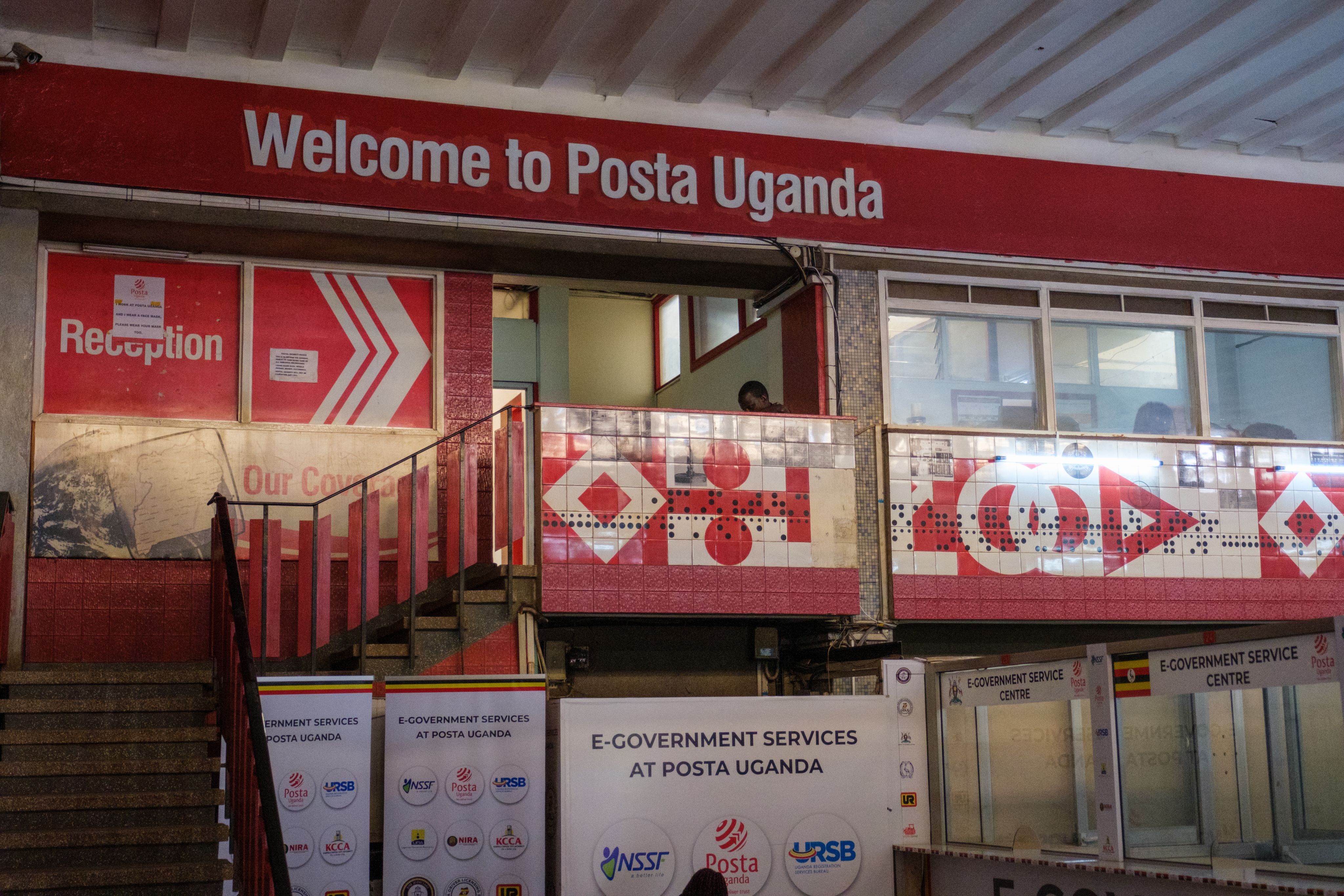
e-Government services at Posta Uganda. Photo credit: AU-EU D4D Hub/Camille Delbos
e-Government services at Posta Uganda. Photo credit: AU-EU D4D Hub/Camille Delbos
While the activities are varied in scope, they all aim to enable the Government of Uganda to have solid foundations on which it can build its digital transformation; for example, clear strategies and work plans, reliable project appraisals and mappings, structured coordination between government institutions and with other actors, and increased awareness and technical expertise among policymakers.

“These activities are not isolated. They are embedded into the overall digital transformation processes that the country is going through,” explained Lucrezia Biteete, D4D Senior Expert at GIZ.
In this sense, she highlighted the importance of having a clear steering from the Government of Uganda (through the Digital Transformation Roadmap) to ensure that all initiatives can effectively contribute to its implementation.
In focus: Knowledge sharing and technical assistance to advance the digitalisation of public procurement
Public procurement accounts for up to 60 per cent of the Ugandan government’s expenditures, playing a critical role in ensuring effective service delivery, good governance, and sustainable development. As such, increased uptake of digital public procurement could offer many opportunities to streamline processes, save resources, and increase transparency and accountability.
From 26 February to 4 March 2023, a delegation of public servants working for the Public Procurement and Disposal of Public Assets Authority (PPDA) travelled to Estonia to learn about the country’s experience with e-procurement.
Facilitated by GIZ, the study visit was the first collaboration with the AU-EU D4D Hub that allowed the PPDA to understand the strategic requirements to scale up the Electronic Government Procurement (EGP) platform and discuss new opportunities to work with European partners. Technical experts engaged by the AU-EU D4D Hub are now supporting the PPDA to develop its own digital transformation roadmap.
Mr Uthman Segawa, Acting Executive Director of the PPDA, explains the institution’s ongoing collaboration with the AU-EU D4D Hub
Mr Uthman Segawa, Acting Executive Director of the PPDA, explains the institution’s ongoing collaboration with the AU-EU D4D Hub
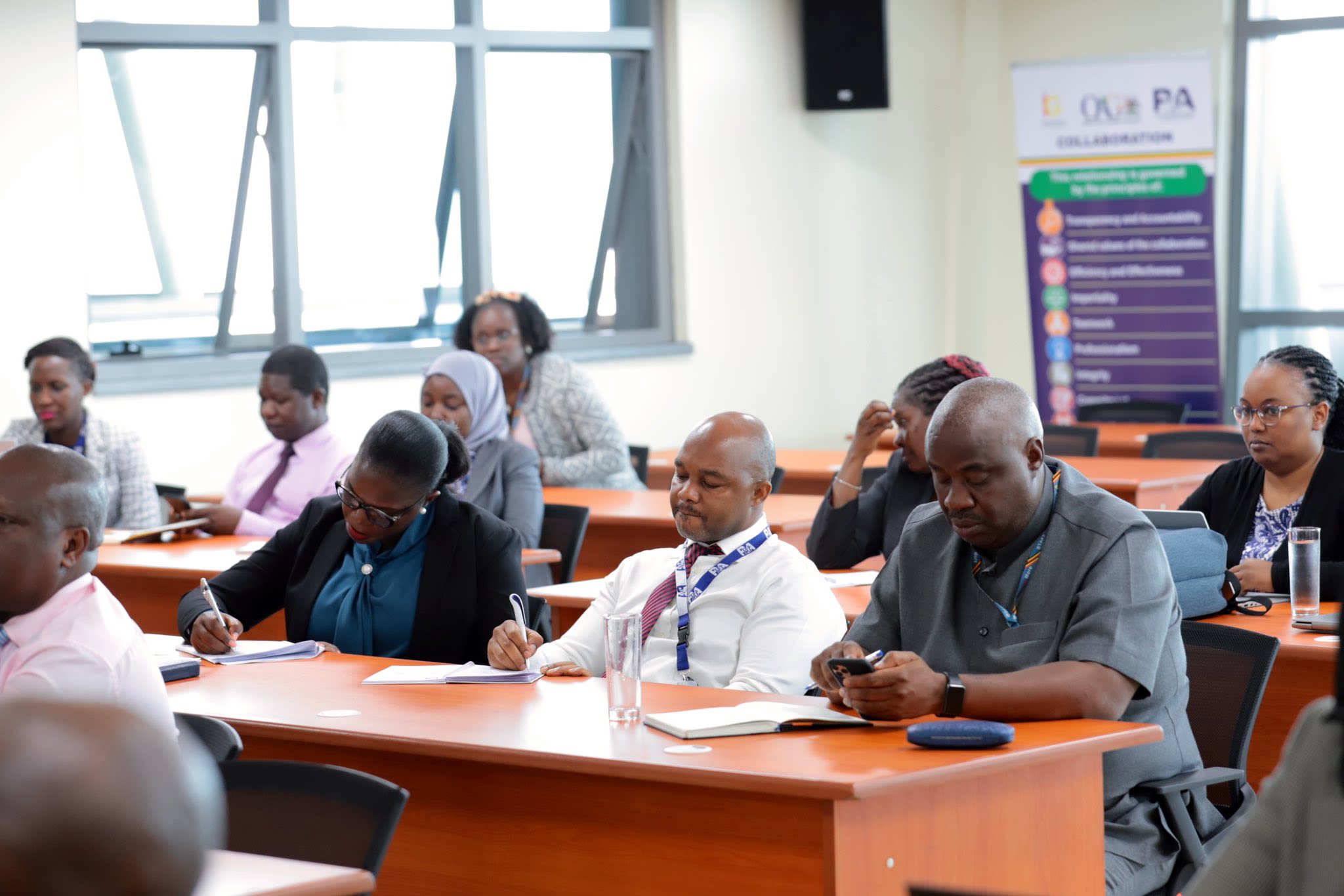

Team Europe, a trusted partner in the digital field
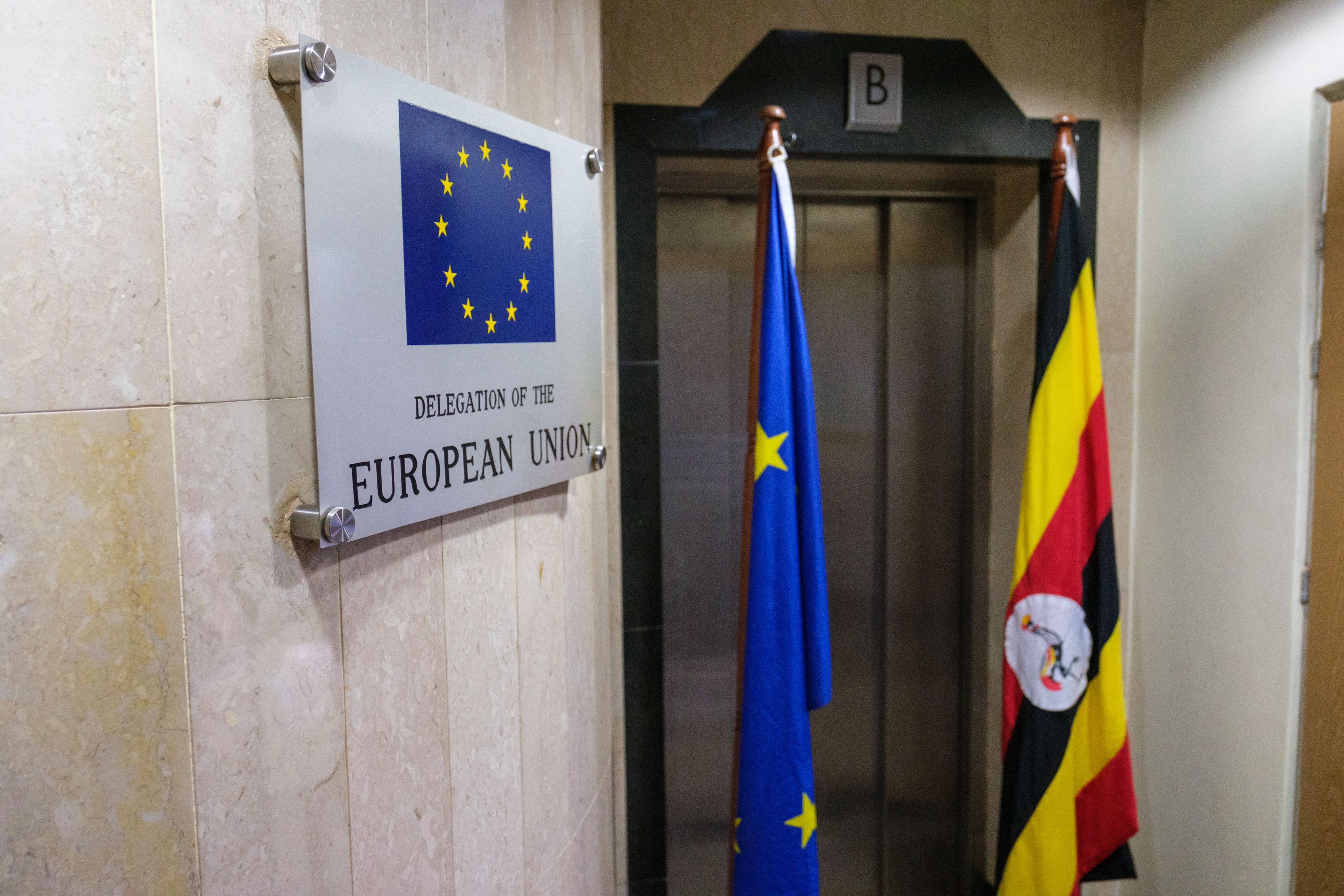
At the European level, one of the consequences of the COVID-19 pandemic was the prioritisation of digital cooperation in international partnerships. As part of the Global Gateway – the EU strategy to boost investments in secure connections around the world – the European Union and its Member States have significantly stepped up their commitments to support Africa’s digital transformation.
“The digital transformation is a key priority under the Global Gateway, which is the European Union's investment strategy for Africa and beyond. The Global Gateway seeks to bring together the resources of all European agencies, finance institutions, and private sector to support large-scale investments in a number of key areas such as connectivity,” said Caroline Adriaensen, Head of Cooperation at the EU Delegation to Uganda.
“The AU-EU D4D Hub has been really instrumental in operationalising the Global Gateway by making sure that it lands in the country and that we can launch the preparatory work for new projects,” she added.
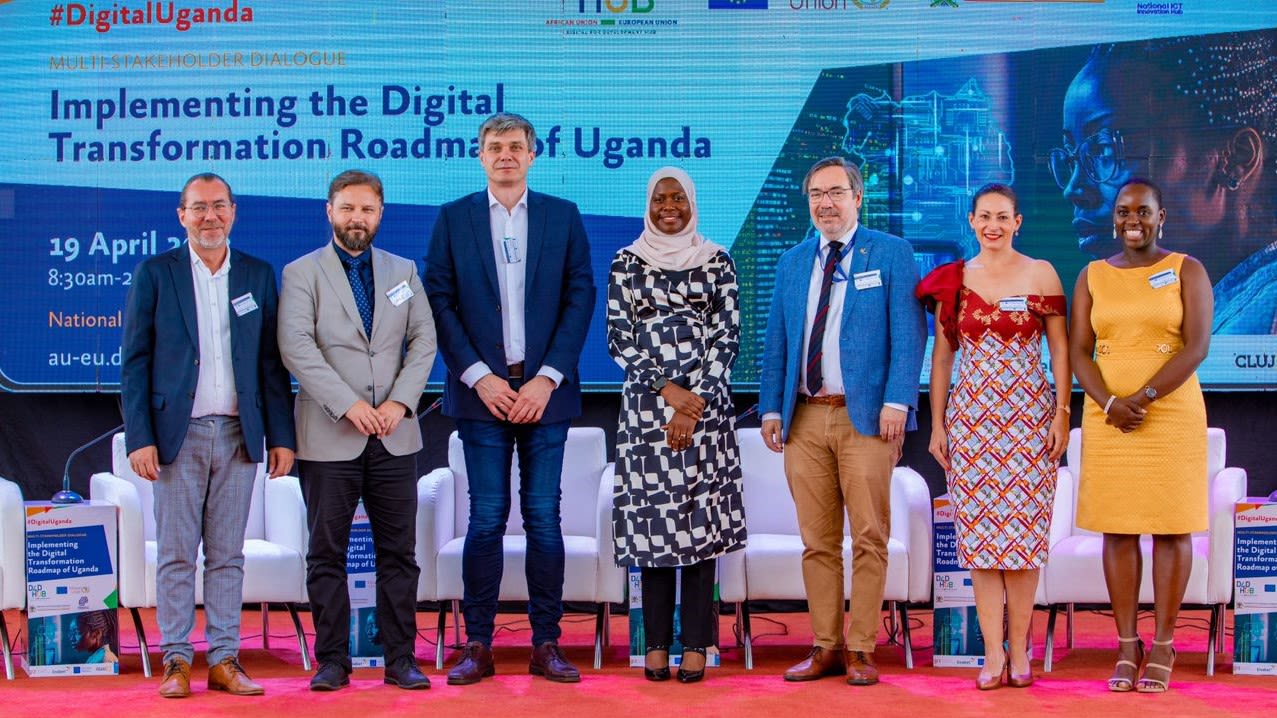
Team Europe at the second multi-stakeholder dialogue facilitated by the AU-EU D4D Hub. Photo credit: MoICT & NG
Team Europe at the second multi-stakeholder dialogue facilitated by the AU-EU D4D Hub. Photo credit: MoICT & NG
In Uganda, the AU-EU D4D Hub has also helped nurture close cooperation among EU Member States – namely Belgium, Germany, and Estonia. This approach has allowed “Team Europe” to build on each other’s strengths to become a more attractive partner to accompany Uganda’s digital transformation.
Enabel, for example, was the first European partner to integrate a digital component in many of its projects in Uganda, mainly in the fields of education and healthcare. GIZ is also a well-established cooperation partner in the country and has a robust project portfolio across many areas. Estonian partners (ESTDEV, e-GA and Estonian ICT cluster) bring strong expertise in the digital field (notably in e-governance), and while their presence in Uganda is relatively new, they have managed to build on Enabel and GIZ’s networks and experience to quickly establish themselves in the country. The EU Delegation to Uganda provides coordination and funding.
“Team Europe and Uganda share a vision for the digital transformation to become a driver of inclusive socio-economic development,” said Adriaensen. “The AU-EU D4D Hub has enabled us to jointly position ourselves as a unified partner of choice ready to support Uganda’s strategic priorities in the digital field.”
“Our collaboration with Team Europe (through the AU-EU D4D Hub) has made us, and them, appreciate the fact that working in silos will not take us anywhere,” said Dr Zawedde. “It has also given us exposure to engage with and learn from other countries’ experiences that will help us realise our digital transformation agenda faster and quicker,” she concluded.
Acknowledgements
This multi-media story is based on the findings of a capitalisation mission to Uganda by the AU-EU D4D Hub Project Management Unit from 5-9 June 2023. The following people were interviewed and provided valuable inputs to identify the project's contributions to Uganda’s digital transformation:
- Ministry of ICT and National Guidance: Dr Aminah Zawedde and Flavia Opio
- PPDA: Uthman Segawa, Christopher Mayanja, Patrick Kakembo and Jenipher Kaggwa
- Ministry of Education and Sports: Patrick Muinda
- PDPO: Stella Alibateese
- EU Delegation to Uganda: Caroline Adriaensen and Simon Muliisa
- GIZ: James Macbeth Forbes, Lucrezia Biteete, Hagimar von Ditfurth, Martin Waiswa and Einar Fogh
- Enabel: Virginie Hallet, Bart Cornille and Anthony Bwengye
- MFA Estonia/ESTDEV: Liina Link and Katrin Winter
The AU-EU D4D Hub would also like to thank the following organisations for providing filming locations to illustrate Uganda’s vibrant digital ecosystem:
- National ICT Innovation Hub
- Circular Design Hub
- The Innovation Village
- MCI Media Hub
- OMNI-Tech
- Posta Uganda
About the project
The African Union – European Union (AU-EU) Digital for Development (D4D) Hub supports African institutions to create an enabling environment for an inclusive and sustainable digital transformation. The project provides demand-driven technical assistance, promotes knowledge sharing, and facilitates multi-stakeholder dialogues. The AU-EU D4D Hub is co-financed by the European Union and implemented by:


